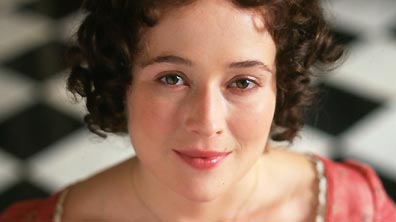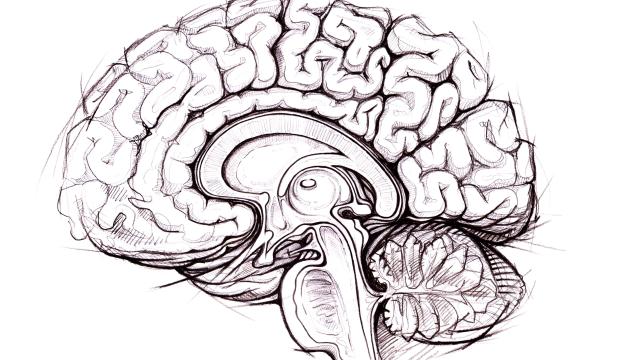The Whole World’s Love Story: “Pride and Prejudice” at 200

A man spends ten years trying to sail home to his faithful wife…
A naked foot slides, with mysterious ease, into the prince’s slipper…
A girl stands on a balcony, proclaiming that her love is as infinite as the sea…
A young lady tells the housekeeper of her estate, not that she loves the rough boy she’s grown up with, or even likes him, but that she is him…
A cynical saloonkeeper hears the first few chords of a certain song and feels his hard exterior cracking…
And in a small town in Regency England, two young people dance a long quadrille of barely disguised sexual tension.
Pride and Prejudice turns two centuries old this year, and it’s one of the few love stories that have lodged in the whole world’s imagination. For a birthday present William Deresiewicz went ahead and called it “the most beloved novel in the language.” It embodies what Wilde meant when he said that life imitates art as best it can: the story is dangerous to use as a template for actual happiness (few rich jerks turn out to be as upstanding as Darcy), but that will never stop millions of readers from trying.
The dream is so seductive in part because its setting is so sensibly realistic. All the other stories mentioned above contain gaudier trappings: the monsters of The Odyssey, the ghostly moors of Wuthering Heights, the exotic locale and wartime passions of Casablanca. Deresiewicz notes that Austen “gives us everything we want: the wittiest lines, the silliest fools, the most lovable heroine, the handsomest estate. And a hero who is not only tall and good-looking, but the richest and most wellborn man in sight.” Yes, but she gives it to us in the context of a sleepy country town in a sleepy historical era.
There is no sex in Pride and Prejudice. There is no kissing. Even the climactic proposal is glossed over (though two earlier, failed proposals are rendered in excruciating detail). What there is a lot of is practical talk about money—about financial disaster, stability, and opportunity. Reputation and social standing are also constantly in play. The novel’s surface concerns are so worldly that we almost forget we’re reading a fairy tale.
But it’s also, of course, an intensely moral book, a great study of character. To me the most fascinating relationship in the book is not between Elizabeth and Jane, or Elizabeth and Charlotte, or even Elizabeth and Darcy, but between “Lizzie” and her father. These two are kindred ironic spirits—both in many ways stand-ins for Austen’s own authorial perspective—and the novel turns implicitly on whether the daughter can avoid a marriage as bad as the one that has trapped her father. If she accepts Mr. Collins’ proposal, it will be a generational tragedy: Collins is every bit as insufferable as Mrs. Bennet. Both Lizzie and Mr. Bennet know this, and that’s why her acceptance of Darcy’s proposal ends up being a formality, while her subsequent exchange with her father is the final dramatic high point of the novel:
“Your lively talents would place you in the greatest danger in an unequal marriage. You could scarcely escape discredit and misery. My child, let me not have the grief of seeing you unable to respect your partner in life. You know not what you are about.”
Elizabeth, still more affected, was earnest and solemn in her reply; and at length, by repeated assurances that Mr. Darcy was really the object of her choice, by explaining the gradual change which her estimation of him had undergone, relating her absolute certainty that his affection was not the work of a day, but had stood the test of many months suspense, and enumerating with energy all his good qualities, she did conquer her father’s incredulity, and reconcile him to the match.
“Well, my dear,” said he, when she ceased speaking, “I have no more to say. If this be the case, he deserves you. I could not have parted with you, my Lizzy, to any one less worthy.” To complete the favourable impression, she then told him what Mr. Darcy had voluntarily done for Lydia. He heard her with astonishment.
“This is an evening of wonders indeed! And so, Darcy did everything — made up the match, gave the money, paid the fellow’s debts, and got him his commission! So much the better. It will save me a world of trouble and economy. Had it been your uncle’s doing, I must and would have paid him; but these violent young lovers carry everything their own way. I shall offer to pay him to-morrow: he will rant and storm about his love for you, and there will be an end of the matter.” He then recollected her embarrassment a few days before, on his reading Mr. Collins’s letter; and after laughing at her some time, allowed her at last to go, saying, as she quitted the room, “If any young men come for Mary or Kitty, send them in, for I am quite at leisure.”
Reading this, we join in the immense relief of father and daughter. The emergence of shared passion—along with the wish fulfillment of money—has distanced the miseries of love into a joke, which along with Mr. Bennet we are permitted to lean back and appreciate.
I may be the first reader ever to have teared up a little at the first chapter of Pride and Prejudice. Granted, I was going through a strange phase at the time—but that wasn’t the whole reason: the characters were so familiar, the comedy so human and assured from page one onward, that it felt like a sort of homecoming. Open the book and you know you’re in the presence both of a great artist and of a family that could be, should be, real. The first chapter concludes with a deft swipe at Mrs. Bennet—“The business of her life was to get her daughters married; its solace was visiting and news”—that could apply to guilty Pride and Prejudice obsessives also. Isn’t it our solace to drop in on the Bennets from time to time, just to see how they’re doing? Has Jane been married yet? Who’s this mysterious man moving in next door? And what about Lizzie?
Gets us every time.





